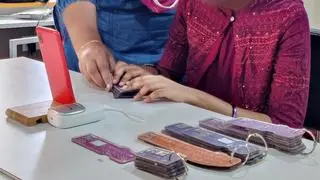More often than not, venture capital (VC) firms play an active part in the companies they invest in. Apart from the board representation they get thanks to the stake they pick up, VC firms help the founders navigate the business – in hiring the right talent, in marketing and sales, in product engineering, ensuring product-market fit, in go-to-market strategy and putting the founders in touch with those in their vast network. In spite of all this, the start-up survival rate in India is still small.
Now, VC firms are going the extra mile and organising scale-up programmes where the founders are put through mentoring sessions from successful serial entrepreneurs who have seen it all and done it all, and industry experts, where the participants learn the much-needed strategy and skills to grow the business. The VCs select the participants based on an elaborate screening process and the ventures can be at an idea stage to having a product ready; that is, early-stage, up to three years in existence.
A slew of programmes
Just take a look at the programmes: Orios Venture Partners, an early-stage VC, has the #Misfits; Lightspeed Venture Partners has Extreme Entrepreneurs; Sequoia Capital India has Surge; Villgro, which incubates social enterprises, runs INVENT; and, Accel Partners has announced Rebound, a programme for second-time entrepreneurs.
The VCs have come up with these programmes because a founder’s job is tough and lonely. The founders do not even know whether the idea can be transformed into a viable business and, if they manage to do that, whether the venture will at all succeed. It is a long and lonely journey, quite often fraught with failure.
In the initial stages, they are entirely dependent on, what is often jocularly referred to as the 3Fs – friends, family and fools – for money and moral support. Then come multiple rounds of fund raise – from angel investors, from seed funds, bridge rounds till they are able to raise a substantial amount in the Series A round. This may take up to three years. Even then they are not sure if the venture will succeed. A vast majority of the companies fail due to various reasons, including that the founders were not able to raise the required funds at the right time or that they did not get the right guidance when needed.
#Misfits
According to Rehan Yar Khan, Managing Partner, Orios Venture Partners, the idea behind the #Misfits programme is for cutting-edge founders to get noticed, funded and learn. Orios is into the third cohort of the programme.
The response to the first two were excellent, says Rehan. The first cohort attracted more than 400 applications, of which about a dozen were short-listed. The second one was for fintech start-ups when about 250 start-ups applied, of which about a dozen were short-listed. The third cohort has been tweaked based on a survey that Orios ran. It got responses from nearly 1,800 founders on what they expected of the programme. Each cohort has 8-10 start-ups.
Shailendra Singh, Managing Director, Sequoia Capital (India) Singapore, says in a post, “at a time when very few believe in a founder’s dreams, when there is little proof of concept and few resources, the most critical decisions have to be made. These early design choices – the first few hires, the early product features, finding the early-adopting customers – can make or break a company. This stage also coincides with the most challenging fund raises. The process can be draining for founders, who typically go through pre-seed, seed and multiple bridges before getting to Series A.”
Sequoia’s ‘Surge’
Surge, according to him, was born out of a desire to take a big leap forward for early-stage ventures in India and South-East Asia.
“Extreme Entrepreneurs is a learning only programme that is zero equity and geography agnostic,” says Vaibhav Agrawal, Partner, Lightspeed Venture Partners. Many at Lightspeed, he adds, had been entrepreneurs before and had benefited immensely from the advice and mentorship of those in the ecosystem. The Extreme Entrepreneurs programme was not just their way of giving back to the ecosystem, but also to improve the chances of success of the enterprises.
Each of these VCs has roped in a galaxy of successful serial entrepreneurs to spend time with the founders selected for the cohorts. Orios has people like Dharmil Sheth, Co-founder, PharmEasy; Ajan Nain, Co-founder, Gully Network; Chakradhar Gade, Co-founder, Country Delight; Yash Sehgal, Co-founder, BeatO; K Ganesh, serial entrepreneur and founder of Portea Medical; Deep Kalra, Founder, MakeMyTrip; Gaurav Hinduja, Managing Director, Capital Float; and, Anupam Mittal, Founder, Shaadi.com.
Lightspeed has names like Sriharsha Majety of Swiggy, Sahil Barua of Delhivery, Ritesh Agarwal of Oyo and Dhiraj Pandey of Nutanix.
Sequoia, which is now conducting the second cohort of Surge, has entrepreneurs from India and South-East Asia addressing the Surge companies. These include Byju Raveendran of Byju’s, Nadiem Makarim, GO-JEK, Girish Mathrubootham of Freshworks, Ankiti Bose of Zilingo, Chatri Sityodtong of ONE Championship and William Tanuwijaya of Tokopedia.
Orios came up with some interesting findings in the survey it ran.According to Rehan, the founders wanted the sessions to focus on three key areas – scaling up efficiently, they didn’t want to burn money and they didn’t want to make too many mistakes; how to go about raising funds more confidently; and, support and guidance on how to hire right. The founders did not want to travel out of the country as they would not be able to spend time away from the business and also because they preferred to hear from successful entrepreneurs who had built businesses in India for India.
“We have designed the third cohort based on the feedback from the survey so that we could correctly support and mentor these early-stage founders,” says Rehan. Orios assures the selected participants upfront that it will invest in each of the selected companies. The amount varies from $50,000 to $1.5 million, depending on what stage the start-up is in and the level of maturity. The mentorship sessions will be held in Delhi, Mumbai and Bengaluru. Orios feels that each cohort should be in existence for 8-12 months; it will be a lot more focussed and intense in the first 3-4 months and the VC firm is putting in place a mechanism to allow the founders to stay with the cohort for 8-12 months.
Extreme Entrepreneurs
According to Vaibhav, Lightspeed has designed the Extreme Entrepreneurs programme to allow the founders to keep building the company while they learn. The programme is one day a week for six weeks.
“We invest in companies 365 days of the year. This is a little bit of playing it forward. We love projects and they love building companies. There are no strings attached. These companies are free to go fund-raise from whoever they want,” he says.
Given its strong presence in the US, India and South-east Asia, Sequoia Capital India has designed the Surge programme to cover start-ups in India and South-East Asia, with the sessions happening in Bengaluru, Singapore, Beijing and the Silicon Valley.
Each session is focussed on one aspect of building the business. For instance, in Bengaluru, the session will focus on product engineering, in Beijing it will be on scaling up, in the Silicon Valley, the Surge session will concentrate on building the brand and in Singapore, on fund raising. Surge is a 16-week programme, of which every month one week is spent in a different country. At the end of the programme, in Singapore, the session is called UpSurge, the founders are prepared for fund raising.
Sequoia assures the participants funding upfront. In the first version of Surge, it gave the participants a flat $2 million. For the second cohort, it has changed it to a range of $1-2 million, thus allowing the companies to bring in other investors who may be interested to put in money. In any case, the total commitment will be $2 million. Sequoia looks at 10-20 companies for each cohort; there were 17 in the first cohort and 20 in the second one. Apart from India, the selected companies are from Indonesia, Vietnam, Singapore and Bangladesh. Sequoia also has a programme called 10X Engineers, where it has drawn up a list of engineers that the Surge companies can select and employ.
‘INVENT’ for impact sector
Villgro’s programme, INVENT, is a lot different from those conducted by the mainstream VCs. Being an incubator for social enterprises, Villgro’s focus is on the impact sector.
According to Paul Basil, Founder and CEO, Villgro, the INVENT programme is focussed on eight low-income States of Rajasthan, Madhya Pradesh, Chhattisgarh, Uttar Pradesh, West Bengal, Bihar, Jharkhand and Odisha. The programme has been conceptualised by the UK’s Department for Industrial Development and the Technology Development Board of the Government of India. Villgro was selected based on a request for proposal.
Paul says that INVENT has been on from 2015 and has helped 150 start-ups in the impact space in these States. Villgro works with four incubators and the start-ups receive ₹25-50 lakh in the form of equity, quasi equity or grant. “The milestone for exit or graduation is when the company raises the next round of funding,” says Paul.
Of the 150 enterprises that have gone through the INVENT programme, close to 40 have raised the next round of funding and a few have gone on to raise multi-million dollar rounds, according to him. “These role models in these geographies will slowly create impact on other entrepreneurs and that is how we build the ecosystem in these places,” he adds.








Comments
Comments have to be in English, and in full sentences. They cannot be abusive or personal. Please abide by our community guidelines for posting your comments.
We have migrated to a new commenting platform. If you are already a registered user of TheHindu Businessline and logged in, you may continue to engage with our articles. If you do not have an account please register and login to post comments. Users can access their older comments by logging into their accounts on Vuukle.